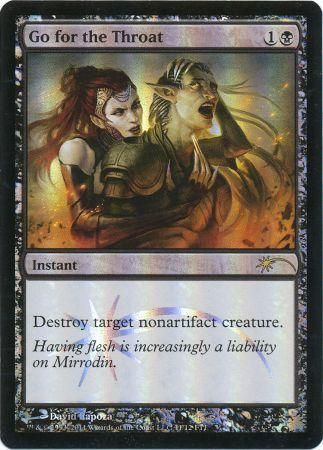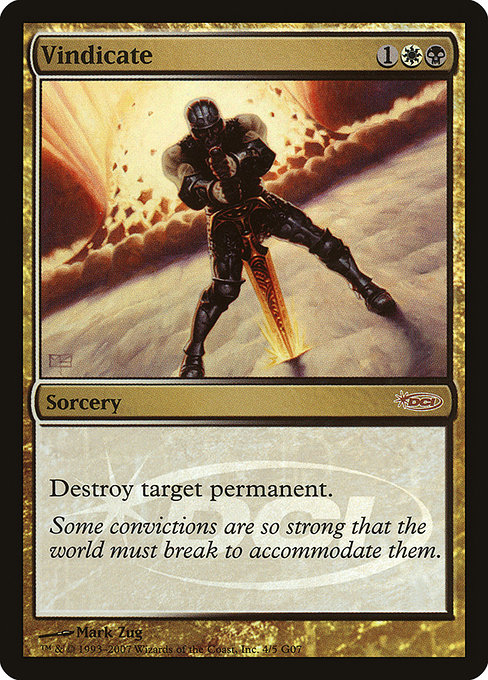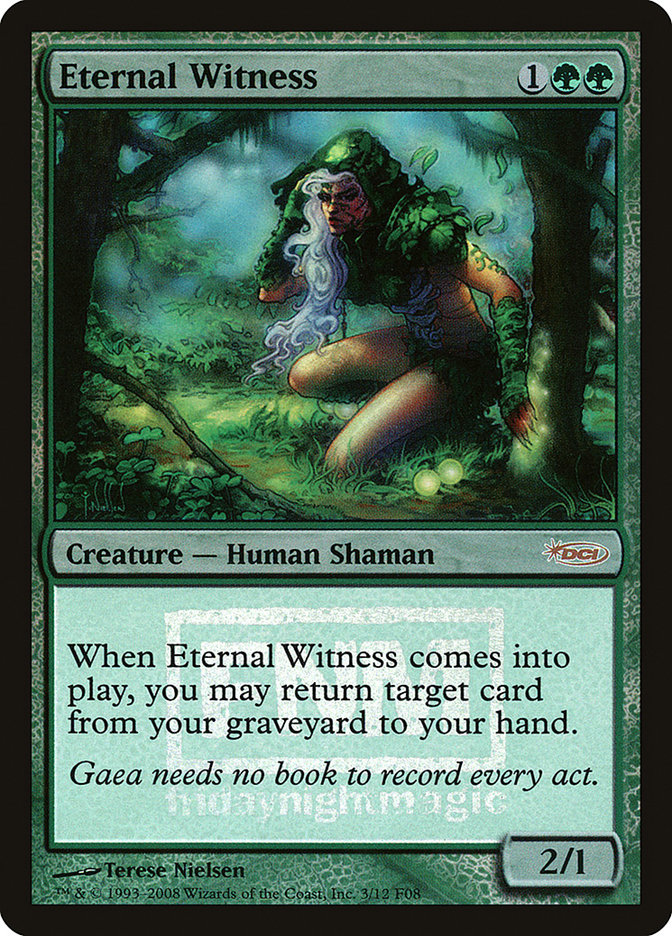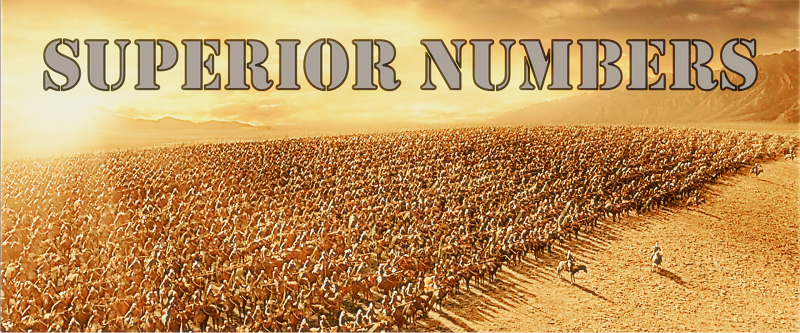A Clockwork Orrery
Vedalken OrreryVedalken Orrery is a very popular card, as evidenced by its appearance in 14,588 decks on EDHREC. Is that number too high or too low?
Welcome to Superior Numbers, where I try to do some numerical analysis on the popularity of a card using more math and less snark than in my usual column. The first time around, I concluded that Exotic OrchardExotic Orchard was underplayed. This time, however, I'm looking at a card that may be overplayed.
Right off the bat, let's address the elephant in the room: The Command Zone, and particularly Josh Lee Kwai, loves Vedalken OrreryVedalken Orrery. And he should! It's a really good card. But is it a card that goes in every deck, as stated on the podcast and on Game Knights? The card's recent surge in popularity and price seem to indicate plenty of people agree, but I wasn't quite sure. I set out to see if I could find some data to verify that one way or another.
I'll tell you my conclusion. Eventually.
"I am just learning to notice the different colors of the stars."
The genesis of this experiment has two parts. The first began as a conversation with fellow EDHREC writers about running the card Amulet of VigorAmulet of Vigor in decks whose mana base consists largely of lands that enter the battlefield tapped. My comment from that conversation was this: you shouldn't run cards whose sole purpose is to make bad cards less bad.
That isn't to say Amulet of Vigor doesn't have a role; it certainly does. Decks like Lord WindgraceLord Windgrace, for example, tend to run ScapeshiftScapeshift and Splendid ReclamationSplendid Reclamation, and can therefore reap many benefits from untapping the masses of lands those spells provide. Amulet is a really solid card. It's just probably not worth a slot in your deck if all it's doing is turning your Golgari GuildgateGolgari Guildgate into an unfetchable BayouBayou.

This discussion got me thinking about other cards that could qualify as "only there to make bad cards less bad," at which point I bumped into Vedalken OrreryVedalken Orrery. It's not a perfect comparison; Orrery doesn't really make bad cards less bad so much as it makes good cards better, and that's significantly more useful. Still, it doesn't do anything unto itself, and that's always less than ideal.
I run Orrery in a deck where it is a perfect fit: a Glissa, the TraitorGlissa, the Traitor "deathtouch tribal" list. There's nothing better than flashing out (or threatening to flash out) a deathtouch creature in a deck where every single creature kills anything it blocks. In addition, because Glissa lets me recur artifacts from my graveyard when an opponent's creatures die, already useful draw engines like Mishra's BaubleMishra's Bauble and Urza's BaubleUrza's Bauble go from 'nice artifacts that may draw me a spell every trip around the table' to 'artifacts that can potentially draw me multiple cards per round, even on other player's turns.' Lastly, Orrery itself can also be recurred this same way if someone hits it with a DisenchantDisenchant or similar removal spell. It really is a perfect deck for it.
Even so, there are times where it's the very last thing I want to do with four mana.
"The cosmos is all that is or ever was or ever will be."
So between the fact that I'm not sure I like cards that don't necessarily do anything but make other cards better, and the fact that in the perfect home I still don't always love it, I began thinking about whether or not I could quantify the usefulness of Orrery, and thus, here we are.
First though, let's look at the card in question:
 | Printings: 2 Avg cost: $22.59 EDHREC decks: 14,588 Top CMDR: Breya, Etherium Shaper
|
The first step would be to find out exactly how many cards in the average deck could benefit from having flash. Pulling data from EDHREC, we find out that the database shows the following average amounts for nonland cards in indexed decks:
- 25 Creatures
- 13 Artifacts
- 9 Sorceries
- 9 Enchantments
- 9 Instants
- 3 Planeswalkers
We'll discount the instant spells from the list, as they gain almost nothing from having flash. I'm also going to disregard planeswalkers. Yes, you can technically flash them in with Orrery before the start of your turn to protect them from attack, but short of a Teferi, Temporal ArchmageTeferi, Temporal Archmage emblem you can't activate their abilities until your turn, which nullifies most of the advantage of casting walkers at instant speed. That leaves the average deck with 56 spells that can benefit from Vedalken Orrery (not counting any that may have flash baked into the card). 56 is certainly more than I thought the average deck would have in their list.
However, this number isn't entirely accurate. You'll notice that the totals above only leave room for 32 lands on average, which seems really light for most decks. That's because cards with dual types, i.e. artifact creatures, artifact enchantments, enchantment creatures, and artifact lands count twice when data is pulled, so the actual total amount of nonland spells in decks is probably closer to 50.
This is where things get really tricky. Do all 50 of those spells benefit from having flash? Yes... and no. Cards in the 'No' category are things like Nature's LoreNature's Lore. Ramp at instant speed does almost nothing for you, save for the really narrow situations when someone ArmageddonArmageddons and you want to float mana to cast a land-fetching spell immediately afterward. On the other hand, leaving BG free for a Go for the ThroatGo for the Throat is way easier when you could also use that mana on your Nature's LoreNature's Lore in case no one casts a creature worth killing. Because of the extreme situational variance, it's really hard to figure out what impact it has on play.


So what can I figure out? Well, remember how I noted there were times when casting Orrery was the last thing I wanted to do with my mana? That's because, in those situations, I was stuck in a position where it wouldn't allow me to do anything until the next turn, when I untapped. That meant I was in a precarious position; I'd have to spend my entire turn on a card that would only pay off theoretical dividends down the road, but would do nothing to stymie the enemies currently breathing down my neck.
Thus, my goal is to try to figure out how often that particular scenario happens, how often Orrery used up a turn without accomplishing anything, and what the turn afterward looked like.
"The purpose of life is the investigation of the sun, the moon, and the heavens."
Here's the methodology I chose, using random decks from deckbuilding websites online:
- Draw seven cards to begin the game, mulligan-ing to something playable.
- Played my first four turns normally as if I had no knowledge of what I would draw on Turn 5.
- If I didn't draw a Vedalken Orrery, whatever the card I drew on turn five became a proxy of it.
- Cast it that turn if possible.
- Note whether or not it allowed me to do anything on that turn.
- Continue to Turn 6 and note how many cards in my hand were viable to cast at instant speed with Orrery.
I defined 'viable to cast' as 'having the potential to be useful.' A VindicateVindicate could be viable even though I don't have other board states to evaluate, whereas an Eternal WitnessEternal Witness with an empty graveyard would not be. In fact, there was one instance where I had a Witness in hand and had a fetchland in the graveyard and I counted that as 'viable' even though it's not a choice one would make that often. The fact that it existed as a choice means it counts.


Problems with this methodology:
- My idea of the optimal plays for a deck I'm unfamiliar with may be incorrect.
- Some decks aren't designed to play this way. I tried to skip ones where the owner clearly noted the deck had a really narrow win path (Captain SisayCaptain Sisay into Paradox EngineParadox Engine is one example) but there're some I probably missed.
So let's look at some stats:

Casting Vedalken Orrery on Turn 5 left mana free for an additional viable spell a mere 6% of the time. On Turn 6, if I did nothing on my main phase but play a land, Orrery had an average of 1.78 cards it could flash from my hand. This means the vast majority of the time, casting Vedalken Orrery in the earlier turns of the game takes up your entire turn doing nothing, and on the subsequent turn it enables on average less than two cards. That also doesn't factor in whether or not the cards it enables are actually worth casting at instant speed.
So what's the takeaway here? Well, I'm not really sure. I don't love casting a card that Time WalkTime Walks myself, but sometimes a long-term investment pays off down the road as you continue to draw more spells. According to some, Phyrexian ArenaPhyrexian Arena is no longer a card we should be running because it requires an upfront investment for a slow payoff, but more often than not, Arena pays you back something sooner than Vedalken Orrery. This artifact's immediate impact is very, very minimal, which means the card doesn't just cost you four mana, it also costs you time and tempo, and that cost shouldn't be ignored.
The argument then becomes this: does Orrery's upside counter the downside? My answer is . . . maybe. Maybe it does. It just probably doesn't do so in every deck, as has been posited in the past. Some decks, especially quick ones, may not want to take an entire turn off to cast things at instant speed down the road. If you're in it for the long game, and you already want to hold up mana for effects like Breya, Etherium ShaperBreya, Etherium Shaper or Thrasios, Triton HeroThrasios, Triton Hero, it's an excellent fit. If, however, you're looking to punch people with Xenagos, God of RevelsXenagos, God of Revels, taking that turn off could be the difference between an opponent dying or that opponent having enough time to prepare a defense. While it's true that tons of cards can benefit from instant speed, Orrery seems to require a bit more building around than it first appears.
"This is the discipline that deals with the universe's divine revolutions."
Observations of note:
- 7 decks tested were unable to cast Vedalken Orrery on Turn 5.
- Of the 100 sample decks, I never naturally drew Vedalken Orrery.
- I hit a surprising amount of decks that seemed to be crafted with non-standard mulligan rules in mind (i.e. lower-than-expected land counts for a deck with a high average CMC, and no real cheap, powerful mana ramp). That might be my next area of examination if I can figure out what to look at.
That’s it for this second volume of Superior Numbers. I think I may try to alternate monthly between this an In the Margins going forward, so if you have any suggestions for either column I’d love to hear them. As always, thanks for reading!
PS: Here's that Glissa deck that likes flashing in deathtouch blockers.
A Touch of Death
View on ArchidektCommander (1)
- 1 Glissa, The TraitorGlissa, The Traitor
Creatures (18)
- 1 Acidic SlimeAcidic Slime
- 1 Bone PickerBone Picker
- 1 Gonti, Lord of LuxuryGonti, Lord of Luxury
- 1 Grave TitanGrave Titan
- 1 Harvester of SoulsHarvester of Souls
- 1 Hornet QueenHornet Queen
- 1 Isareth the AwakenerIsareth the Awakener
- 1 Ochran AssassinOchran Assassin
- 1 Ohran ViperOhran Viper
- 1 Rhonas the IndomitableRhonas the Indomitable
- 1 Sidisi, Undead VizierSidisi, Undead Vizier
- 1 SkullwinderSkullwinder
- 1 Stinkweed ImpStinkweed Imp
- 1 Tetzimoc, Primal DeathTetzimoc, Primal Death
- 1 The Gitrog MonsterThe Gitrog Monster
- 1 Thorn of the Black RoseThorn of the Black Rose
- 1 Vampire NighthawkVampire Nighthawk
- 1 Wurmcoil EngineWurmcoil Engine
Artifacts (22)
- 1 Commander's SphereCommander's Sphere
- 1 Darksteel PlateDarksteel Plate
- 1 Engineered ExplosivesEngineered Explosives
- 1 Executioner's CapsuleExecutioner's Capsule
- 1 Expedition MapExpedition Map
- 1 Golgari SignetGolgari Signet
- 1 Horizon SpellbombHorizon Spellbomb
- 1 Lightning GreavesLightning Greaves
- 1 Mimic VatMimic Vat
- 1 Mind StoneMind Stone
- 1 Mirage MirrorMirage Mirror
- 1 Mishra's BaubleMishra's Bauble
- 1 Mox OpalMox Opal
- 1 Nemesis MaskNemesis Mask
- 1 Nihil SpellbombNihil Spellbomb
- 1 Sol RingSol Ring
- 1 Thornbite StaffThornbite Staff
- 1 Triangle of WarTriangle of War
- 1 Urza's BaubleUrza's Bauble
- 1 Vedalken OrreryVedalken Orrery
- 1 Viridian LongbowViridian Longbow
- 1 Wayfarer's BaubleWayfarer's Bauble
Enchantments (6)
- 1 Deathreap RitualDeathreap Ritual
- 1 NecropotenceNecropotence
- 1 No MercyNo Mercy
- 1 Phyrexian ArenaPhyrexian Arena
- 1 Revel in RichesRevel in Riches
- 1 Sylvan LibrarySylvan Library
Sorceries (9)
- 1 DamnationDamnation
- 1 Decree of PainDecree of Pain
- 1 Demonic TutorDemonic Tutor
- 1 ExsanguinateExsanguinate
- 1 Maelstrom PulseMaelstrom Pulse
- 1 Pir's WhimPir's Whim
- 1 RegrowthRegrowth
- 1 Toxic DelugeToxic Deluge
- 1 Yawgmoth's WillYawgmoth's Will
Instants (8)
- 1 Assassin's TrophyAssassin's Trophy
- 1 Back to NatureBack to Nature
- 1 Beast WithinBeast Within
- 1 DeglamerDeglamer
- 1 Heroic InterventionHeroic Intervention
- 1 Sudden SpoilingSudden Spoiling
- 1 Unravel the AetherUnravel the Aether
- 1 Vampiric TutorVampiric Tutor
Lands (36)
- 1 Ancient TombAncient Tomb
- 1 BayouBayou
- 1 Bojuka BogBojuka Bog
- 1 Cabal CoffersCabal Coffers
- 1 Command TowerCommand Tower
- 1 Darksteel CitadelDarksteel Citadel
- 1 Dust BowlDust Bowl
- 5 ForestForest
- 1 Hashep OasisHashep Oasis
- 1 Homeward PathHomeward Path
- 1 Ifnir DeadlandsIfnir Deadlands
- 1 Llanowar WastesLlanowar Wastes
- 1 Maze of IthMaze of Ith
- 1 Overgrown TombOvergrown Tomb
- 1 Reliquary TowerReliquary Tower
- 1 Scavenger GroundsScavenger Grounds
- 1 Strip MineStrip Mine
- 5 SwampSwamp
- 1 Tainted WoodTainted Wood
- 1 Temple of MaladyTemple of Malady
- 1 Tree of TalesTree of Tales
- 1 Twilight MireTwilight Mire
- 1 Urborg, Tomb of YawgmothUrborg, Tomb of Yawgmoth
- 1 Vault of WhispersVault of Whispers
- 1 Verdant CatacombsVerdant Catacombs
- 1 WastelandWasteland
- 1 Woodland CemeteryWoodland Cemetery
- 1 Yavimaya HollowYavimaya Hollow
Dana Roach
Dana is one of the hosts of the EDHRECast and the CMDR Central podcast. He lives in Eau Claire, WI with his wife and son. He has been playing Magic so long he once traded away an Underground Sea for a Nightmare, and was so pleased with the deal he declined a trade-back the following week. He also smells like cotton candy and sunsets.
Your opinions are welcome. We love hearing what you think about Magic! We ask that you are always respectful when commenting. Please keep in mind how your comments could be interpreted by others. Personal attacks on our writers or other commenters will not be tolerated. Your comments may be removed if your language could be interpreted as aggressive or disrespectful. You may also be banned from writing further comments.
